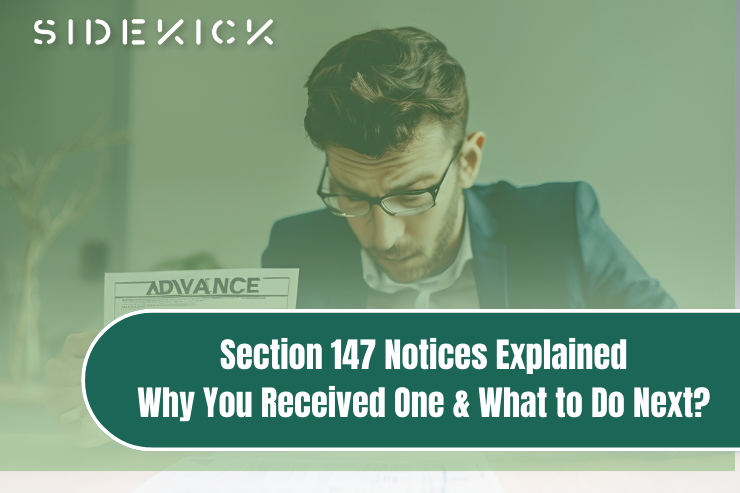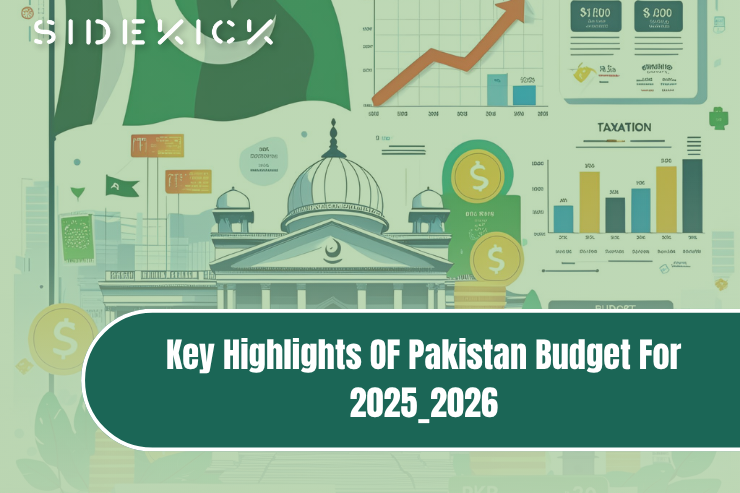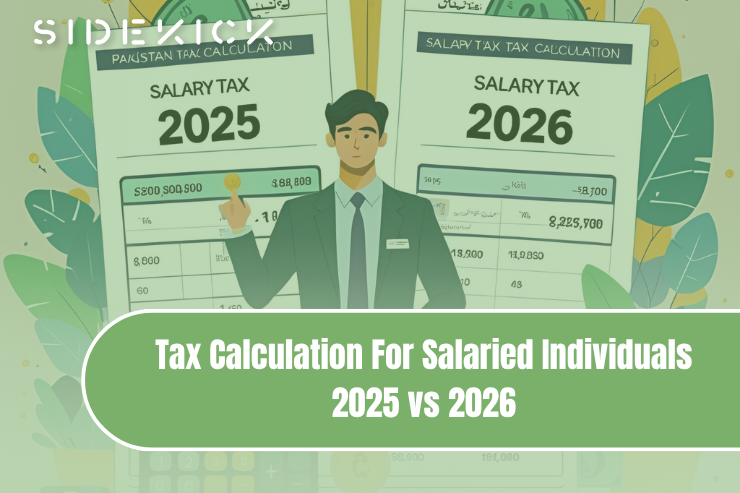A Section 147 notices from the Federal Board of Revenue (FBR) can be quite stressful, but being prepared for what this entails and knowing what to do can certainly help ease the situation. Tax laws are something you need to know no matter whether you own or run a business, are a freelancer, or are working in a salaried capacity, as you don’t want to fall prey to penalties.
In this guide, we will explain Section 147 notices so that you understand them, why you receive them, and how to respond to them appropriately.
What is Section 147 of the Income Tax Ordinance?
Advance Tax is paid in Pakistan under section 147 of the Income Tax Ordinance, 2001. This law requires taxpayers who meet certain criteria to pay their taxes in installments throughout the year instead of accumulating them at the end of the fiscal year.
It also implies that if you are on the list of people or business entities that are under a duty to pay advance tax, you must pay advance tax on a quarterly basis before you get an actual tax demand from FBR.
Why Did You Receive a Section 147 Notice?
FBR issues Section 147 notices primarily because of non-compliance with advance tax requirements. Here are the key reasons why you might have received the notice.
1. Your Income Exceeds the Threshold for Advance Tax
- The tax law requires those earning more than Rs. 1 million in their latest declared income to make quarterly advance tax deposit payments.
- Businesses and Individuals who surpass the established tax threshold must determine their tax burden and make the required payment.
2. You Have a Large Turnover
- Advance tax is mandatory for companies and businesses with an annual turnover of more than Rs. 100 million.
- Even if your taxable income is low, this counts even when FBR calculates the tax based on your turnover in some cases.
3. You Are a Freelancer or Self-Employed Individual
- Most freelancers and self-employed professionals never realise they are classed as Section 147 if they earn above the threshold.
- FBR might pursue you if you have foreign remittances, digital earnings, or online business income and did not pay advance tax.
4. You Filed Your Tax Return Late or Incorrectly
- If your past tax returns have been wrong or filed late, FBR may send a Section 147 notice to you asking that you pay advance tax on time in the future.
5. You Recently Registered a Business
- You might receive a notice if you have recently registered a company or business with the Securities and Exchange Commission of Pakistan (SECP) or FBR.
How to Respond to a Section 147 Notice?
If you’ve been issued with a Section 147 notice, don’t worry. Here is the step-by-step way of handling it:
Step 1: Carefully Read the Notice
- You need to understand the reason behind the notice and check the deadline for complying with it.
- Identify whether FBR is demanding advance tax for the current quarter or previous quarters.
Step 2: Calculate Your Advance Tax Liability
According to the latest declared income or turnover, you will calculate the amount of your advance tax.
For Salaried Individuals & Freelancers:
Advance Tax = (Tax liability of previous year) ÷ 4
For Businesses & Companies:
Advance Tax = (Estimated Tax Liability for Current Year) × Applicable Percentage
Suppose your tax liability in the previous year was Rs. 400,000; then you would have to pay Rs. 100,000 in advance tax, quarterly.
Step 3: Deposit Your Tax Before the Due Date
- An advance tax can be paid by online banking, ATM, or FBR’s payment portal using those PKRs you generate on IRIS from your FBR’s online system.
- Be certain of when the tax was paid before the date in the notice to prevent penalties.
Step 4: File a Compliance Report on IRIS
- After you make the advance tax payment, make use of the IRIS portal to submit an appropriate response that you have removed your tax liability.
- Provide proof of payment by attaching the Challan receipt.
Step 5: Consult a Tax Consultant (If Necessary)
- If you are unsure about your tax calculation or think the notice was drafted incorrectly, it is advisable to hire a tax consultant or chartered accountant to help you.
- Professional assistance can stop miscalculations and penalties.
What Happens If You Ignore the Notice?
Ignoring the Section 147 notice can have very severe results, including:
- One penalty of FBR is imposed for every day of non-payment of the amount.
- If you don’t pay advance tax, FBR may estimate your high liability and demand more taxes in the future.
- Continuous non-compliance will increase the risk of being audited/tax investigated by FBR.
- Failure to meet the advanced tax laws can prevent companies from renewing their licenses or limit their financial abilities.
Stay Compliant & Stress-Free with Sidekick – Your Partner in Tax & Payroll Management!
Tensed with an Advance Tax Notice under section 147? Sidekick helps you to take care of your payroll processes and tax compliance without stress at the minimum cost to help you stay ahead of deadlines.
We provide automated tax calculation, payroll management, and compliance solutions to help businesses and professionals in Pakistan efficiently manage their advanced tax obligations. Sidekick has you covered: we offer accurate tax deductions, secure quarterly payments, and excellent tax advice.
Conclusion
A Section 147 notice is not something to be afraid of. It is a mild check that FBR has to put on the people in a position to pay taxes in advance. If you have been sent, take immediate steps to ascertain your liability and ensure that payments are made on time and that all paperwork is in order.
If you are proactive and well-informed, penalties will not bother you. You will be compliant with
FBR regulations and manage your taxes efficiently.
If you haven’t completed your taxes or business, a tax advisor can help you understand your tax obligations and keep your financial records in order.







